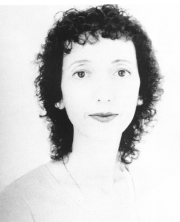American Essays
Of the Century
Joyce Carol Oates
Robert Atwan, Editors
(Houghton Mifflin)

And what to include? Well, in a word, the famous. Not M. Lee Goff or Richard Timothy Conroy or John Fante or Lawrence Shainberg or Craig Childs --- all great essayists on subjects as diverse as growing up in America or working abroad or living in the wild or studying forensics or brain surgery. No: we have collected but run-of- For example, in the going nuts department, there's F. Scott Fitzgerald --- but "The Crack-Up" is a scattered, almost apologetic exegesis on incipient lunacy. If the editors wanted something rich, meaningful about losing your cookies, they could have sought out Salvadore Minuchin or Milton Erickson or the superb Lauren Slater whose description of falling-apart was the best of them all in the recent Unholy Ghost: Writers on Depression. But F. Scott Fitzgerald is famous, and who's ever heard of Lauren Slater? Alice Walker: we all know that name --- but when she takes us on a trip down to Sanford, Florida to look for memories of the black writer Zora Neale Hurston, we have to fiddle a bit to find what Ms. Oates and Mr. Atwan have decided is one of the century's best: "I am Miss Hurston's niece," I prompt the young woman, who brings her head down with a smile. "I think Mrs. Moseley is about the only one still living who might remember her," she says. "Do you mean Mathilda Moseley, the woman who tells those 'woman-is-smarter-than-man' lies in Zora's book?" I dunno --- maybe people really talk like that in Florida but then again, maybe it's a literary device that just doesn't work. Least ways, it didn't for me. In fact, what we have here is not a book for you and me but what they call in the biz a "targeted book." In this case, it smells of B.A. This one is meant to be studied. And there are certain rules to be observed when you ignore the mere interested reader, and instead, work at getting your book into the university bookstores and on the college professors' desks. An anthology aimed at the college set requires a delicate balance. For sure, you have to get black authors in there. American Indians, too. Half or almost half of the writers must not be, in the colorful phrase of the times, dead white men. And you also have to be careful: nothing too exciting, nothing too nasty; nothing that might ruffle the feathers too much. Remember, this one is aimed at American Heartland Universities. No Malcolm X nor Abbie Hoffman, no matter how masterfully they put words to paper. Do you think the University of Kansas English Department --- potential sales, 500 volumes a year --- wants an angry chapter pulled from Soul on Ice being hauled around in the backpacks of its sophomores? Henry Miller? Charles Bukowski? Paul Krassner? No, no, no: none of the angries. This book is meant to be sold, not given away. And we certainly don't want any topics out of the loop. No Bo Lozoff on prisoners, Alan Watts on Zen, Warren Hinckle on radical kick-ass politics, Gordon MacCreagh on travel, Ellen Meloy on the deserts, Rose O'Reilley on Buddhism. Certainly not Michael Korda, one of the best essayists going today, right there in Oates back yard --- telling of a riotous visit with Reagan during His Blandness' last days in office. (Maybe Oates and Korda had a falling out; he's known to be intolerant of cant and arrogance.)
And the Latinos? Is Richard Rodriguez to be our one token representative? Why not Virgil Suárez, Juan Santiago Baca, Luis Sepúlveda, Carlos Amantea? Well, for one thing, you must remember this: Oates and Atwan come out of the New England Boiled Dinner literary set which means The New Yorker, Harpers, The New York Times, The New York Review are standards. For these folk, the literary world stops at the edge of the Hudson Review... I mean, the Hudson River. A Latino writer like Suárez who writes like a riot (about his teeth, for god's sakes) is just too far out of their ken.